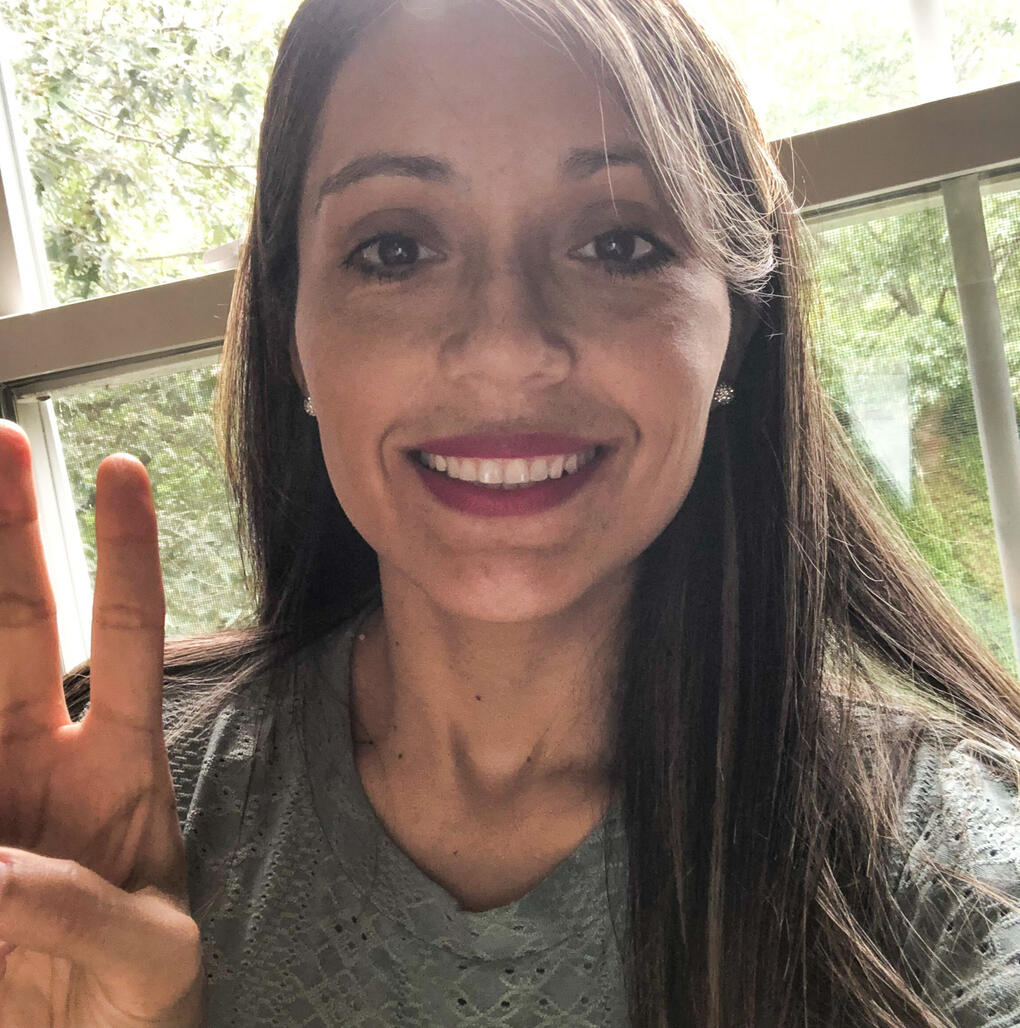
VOICE YOUR WANTS
respectfully express boundaries with family, friends, and co-workers

Is it okay to ask for help?
Misconceptions about what it means to ask for help
can impact whether or not you decide to sign up today.Regardless of how or when these misconceptions
may have started, it does not make them true.Asking for help is only that (asking for help.)In mindfulness, it's is explained that ones does not
need to add a meaning or interpretation.

begin by validating yourself
Allow others to have their own responses while you control your approach
Be confident that you're not doing anything wrong
Identify and modify your self-talk and or your comparison to others
Identify long-standing patterns of how you make decisions
Improve your emotional intelligence
Practice active listening, staying on topic, using "I" statements, etc.
Practice mindfulness
Practice saying "No" when needed
Practice visualization
Question your guilt, regret, and shame and see if it is warranted
Reframe situations
Speak clearly without filler words
Start aligning your behaviors with what is important to you
FREQUENTLY ASKED QUESTIONS
What will I get out of this assertiveness coaching session?
An assertiveness coaching session is a low-risk (phone audio only) solution focused coaching session, where we take a step back and evaluate your choices and create new thinking patterns, perspectives, and make a plan to follow. You will problem-solve what usually leads to not accomplishing what you want. Sometimes it's not having boundaries , having self doubt , worrying about the “what ifs” scenarios, having difficulty staying calm to speak clear and direct, overthinking , etc.
You will learn to focus on the “what is” vs the “what could be” and learn to put an end to ruminating about situations.
All these different steps can help improve your confidence to approach the present situation. You will be aware of your intention and effectively learn to talk to yourself and others. Being assertive can help you settle different work-related stressors, maintain boundaries with family and friends, and feel in control of what you are going to say and do.
How does being assertive help me reduce additional stress?
When you are assertive, you tend to stand up for what you want and acknowledge that your time and opinions matter as much as someone else's, which helps you say "no" when needed. By being assertive, you speak clearly and honestly with others and follow through on what you are saying. This can lead to having more open and honest types of conversations and relationships. This also can lessen conflicts and lead to resolutions as you are clear on what you are okay with while respecting others' different perspectives and opinions. Being assertive reminds you to not react to others' opinions as if they are your reality and remain confident that you do not need to change your stance.
Are there any cons to being assertive?
There could be. Some people may not like when you say "no" or establish boundaries in the relationship and they may distance themselves. If this happens, you can ask them to tell you what they actually heard you say, and ask for your requests to be respected as you would or have respected theirs in the past. You can ask to engage in an open dialogue and clarify your intentions, but unfortunately some people may not want to hear it.
Be confident that you are simply being assertive and not being selfish, rude, or wrong by voicing your opinions, respecting your values and your time. And remember that by remaining assertive, it teaches others how to problem-solve and learn to manage and process their own expectations and wants.
Can I use this in every conversation?
Yes, you can. Sharing your opinions, standing up for yourself, responding and not reacting, respecting yourself and others, and speaking honestly and clearly is something you can decide to use whenever you want.
Can you teach me how to work through intense (or tough) conversations?
Yes, I can. I will provide you with sample statements and responses to address the conversation. Create a plan for what to do and what not to do during and after. We could role play parts of the conversation. You can start by being assertive with yourself by speaking to yourself with a clear and validating stance.
Is assertiveness practical?
Yes, assertiveness is a practical skill because it is action-orientated. And, through practice it can be adopted as your main way of communicating in any type of conversation you may find yourself in. Start identifying your preferences and asking for it.
What can I accomplish by being assertive?
Become less stressed when making decisions
Decrease feelings of being taken advantage of , feeling resentful , feeling burnt out, stop avoiding others, etc.
Create and maintain guilt-free boundaries
Stop personalizing opinions
Gain self-confidence
Say “no” when needed
Accept others opinions as opinions only
Learn to check in with yourself
Gain awareness of the type of life you want to live and lead with
Identify decisions that are not aligning with your intentions and what you value and consider important
How does being assertive help me reduce additional stress?
Boundaries tell others what you're okay with and what they can expect, so both you and them are clear on what is supposed to happen. Assertiveness is an effective way of communicating that can help reduce conflict as it is a clear, honest ,and respectful style of communication. You can feel in control of what you will say and do.
What about my life will change after I learn how to be assertive?
The type of relationship you have with yourself and with others will change as you will respect your opinions and values as well as be aware of others’ rights. You will experience less self doubt and more confidence in the ability to say “no”. You will lead with an intention and a plan to follow in different conversations.
How will I know I am being overly rude or aggressive?
First, you will define what you would have to say and or do to sound "rude" or "aggressive" and ask yourself if you are doing this or not. Also, by practicing with me and being provided feedback about how your language may be coming off in the conversation, identifying characteristics of rude behavior, asking the other person if they find your approach rude or aggressive, etc. Remember this session is designed for you to ask questions about what you experience when trying to talk to others.
Who is assertiveness coaching right for?
Assertiveness coaching is right for anyone needing to learn how to effectively use a new skill.
Do I need coaching or therapy?
It depends on what you are experiencing, ability to cope with your situation, and what you are expecting out of sessions.
Therapy can be helpful when one's concerns are making daily life and functioning difficult and the concerns cause an overwhelming part of their day being consumed with sadness, anger, avoidance, worry, excessive fear, etc.
Therapy can provide assistance managing mental health conditions and their symptoms especially if one experiences thoughts of wanting to commit suicide or hurt others in anyway.
In therapy, you can address thoughts about suicide and or self-harm as well addiction, eating disorders, mood disorders, and other mental health diagnosis that may make one feel hopeless or controlled by their symptoms. Therapy can also serve as a time to process grief and trauma and discuss medication management, or social services to supplement sessions.
Coaching focuses on teaching you a specific skill (assertiveness) and adding to your current personal and professional areas to effectively start communicating your wants.
Coaching identifies practical steps to follow and become action- oriented in what you want to happen next while respecting yourself and being aware of others’ rights.
Coaching is not meant to substitute therapy and does not include any mental and or emotional healing or any assessments , diagnosing, prevention, or treatment of mental/emotional distress.
All Rights Reserved| 2025 | Be Assertive LLC
ABOUT
I am in my mid 30's and have lived in different places throughout my life. The people closest to me would use funny, assertive, extroverted, and present in life as ways to describe me.Most of my days tend to include reading, walking, and picturing a number of things anywhere.

I was awarded my Bachelor's degree in Psychology in 2005 and received my Masters degree in Clinical Counseling in 2013.Since then, I became a licensed counselor and have worked in a variety of settings and mostly recently worked with Betterhelp until November 2021.While working with Betterhelp, I realized although I was helping people through counseling, I found some of the license requirements limiting and unnecessary.

Also, not everyone was in
need of therapy but still needed some type of help. After months of considering how to continue helping people problem solve, behavior change, and move on in their lives, I committed to coaching others versus continuing to practice as a therapist.I find more freedom and flexibility helping people in this manner. Specifically coaching others on assertiveness, a communication style to help voice one's needs and wants to themselves and to others.I believe the skill of communicating assertively has the ability to make change happen in different areas of one's life.Personally, I started learning to communicate assertively when having to translate my family's needs growing up.At the same time while having to translate, I had to be aware and respect the receiving person's rights and opinions.
Professionally, working in many settings in the mental health field, I was able to hear the constant miscommunication or lack of communication that was adding to clients' worry, self-doubt , resentment, stress, avoidance, irritability, and so on.And, when we discussed how to stand up for their opinions and wants as well as saying "no" and how to establish and maintain boundaries, the positive interactions and mood patterns and habits changed.When thinking about signing up for coaching appointments, you may wonder if I am a "good coach " to help you. Being a "good" coach depends on how you define what good means.Here is what you can expect from me: practical tips/ feedback / guidance and solutions from evidence-based models as well as clear boundaries about our professional relationship.I will be on time and remain present throughout each conversation. I will not judge your life experiences or circumstances. Your privacy is respected and I do not search your name online or offline is any manner.

Reviews may or may not be a factor you consider when working with someone. While I do not have reviews for my coaching services right now, I had several ones for when I was working as a therapist with BetterHelp 2019-2021.I did not ask for these reviews.
You can read them here.Names are not listed. I feel confident in helping you with the same interest and priority as I did when I worked with these therapy clients.Thank you again for choosing to work with me.
All Rights Reserved | 2025 | Be Assertive LLC
Become the assertive version of yourself
Starting coaching is an important opportunity to enhance your communication skills and to start changing your relationship with yourself and others!With practical strategies and evidence-based feedback, you will gain a clearer understanding of how you communicate and interact with others and yourself. You will learn how to identify, set, and maintain boundaries and stand up for your needs and wants effectively.You will become action-orientated and learn to be mindful when you are personalizing an opinion and many other skills. During this coaching session, you will have my uninterrupted interest and focus to discuss and problem-solve what is currently on your mind. Sessions will be result orientated and advice is evidence-based drawing from dialectal behavioral therapy, motivational interviewing, cognitive therapy, and others.Don't miss out on this big opportunity to advance your communication skills today!
During this coaching session, you will have my uninterrupted interest and focus to discuss and problem-solve what is currently on your mind.

All Rights Reserved | 2025 | Be Assertive LLC
Be Assertive LLC Coaching Agreement
My name is Angela. I look forward to working with you and sharing the different things I have learned to help you in any way I can. The following are statements that you agree to be true in order for both of us to have clarity regarding policies and expectations when starting this
Coach-Client relationship.If you have any questions, please let me know before you agree and sign.Disclaimers and Policies:Description of coaching: Guidance on how to build on current personal and professional areas and effectively comunícate your needs. Identify practical steps to follow and make intentional changes to start living the life you want to live. Gain clarity about what is holding you back and become action-oriented in what you want to happen next. Evaluate your choices and intentions to assist your decision making.The Client acknowledges and understands that coaching is not mental health therapy /substance abuse counseling/ consulting and is not to be used as a substitute for mental health, medical, legal, and or other professional services.Coach-Client Relationship:Coach agrees to be attentive and present during all scheduled telephone sessions and to respect Client's privacy. This includes not searching the client's name online or offline in any manner. Client information is not shared and or discussed with third-parties. Coach agrees to maintain all Clients' information and conversations confidential and private, as allowable by law.Coach and Client agree to adhere to scheduled appointment times.If the Client is more than 15 minutes late to the scheduled appointment, it will be assumed the appointment is cancelled. At this time, the Client will be responsible for the full coaching fee of the missed scheduled session.If the Coach is more than 15 minutes late to the scheduled appointment time, the Client can assume the session is cancelled and will not be responsible for any type of payment.The Client acknowledges that he/she is solely responsible for implementing their own decisions, actions, results and decisions resulting from the coaching relationship. This means the Client agrees that the Coach will not be liable nor responsible for any action or inaction taken by the Client during or as a result of the services received during coaching sessions.The Coach makes no guarantees of any kind related to the coaching sessions provided, agreed on, and paid for. Coach is not responsible for any direct or indirect damages. If for any reason, the Coach is deemed legally responsible, the amount shall be limited to the amount that was paid by the Client to the Coach during all scheduled sessions.Coaching Sessions:Sessions will be conducted using audio-only communication over the phone and are 60 minutes. Clients can schedule each individual session on any day and time that is available for schedule. Coach will initiate sessions at the phone number provided by the Client.I consent to the coaching sessions involving the use of electronic communications. Coaching Sessions are not therapy and are not to be used as a substitute for any type or mental health counseling, substance abuse treatment, legal, medical, and any other licensed professional advice/care. If you are in need of mental health therapy, please know that coaching will not diagnose, prevent, treat, manage or cure any mental disorder or medical condition.Both the client or the coach can terminate the coaching relationship at any time and for any reason.Technology: Emails/ Phone calls:Problems may delay scheduled sessions. In a rare instance, there could be a breach to the mail server used. Mail server may not be secure. Causing breach of privacy or causing lost information. You will be notified as soon as this were to ever happen.Age:Client agrees that he/she is 18 years of age or older when signing up and when participating in coaching sessions.Previous Mental Health / Substance Abuse Treatment:Client agrees to disclose any past or current psychiatric treatment including past or recent mental health hospitalizations. If these concerns become significant in session, you will be referred for mental health counseling.Client agrees to not use scheduled coaching sessions/ communication with coach as a substitute for mental health counseling and or for any type of crisis management.Client agrees that he/she is not expecting therapy services as a result of signing up for coaching or by communicating with Coach.Coach will deny any requests involving written documentations/phone calls/ electronic emails to Physicians, Probation Officers, Mental Health Workers, Universities/ Employers/ etc regarding clients mental health state and or capabilities.Coach will deny any requests made by the client involving the need for the coach to determine the client's mental health status as well as their emotional, medical, physical, spiritual, and or social well being.Confidentiality:Anything written, said, or recorded by the client is confidential. However, Coach reserves the right to break this agreement if the client reports thoughts of ending their life or anyone else’s, harming themselves or others in any way, reports any type of abuse/ neglect to children and or the elderly as well as anything that would be prohibited by the law.Please be aware that the coaching communication could be compelled by law enforcement as the communication between coach and client is not protected in the same way communications between a licensed mental health or medical /legal professional and their client is protected.The Coach-Client relationship is not considered a legal confidential relationship.Record Retention:Coach will at times write resource names, links, examples to be discussed and or write details from the session to use as preparation or reminders for future appointments and for self consultation.This is used for Coach to reference only. Clients are responsible for taking their own notes during or after coaching sessions regarding what was discussed and or questions for the next session.Identification and Contact Information:Provide your full name, current phone number, and your signature at the end of this agreement.Cancellation/ Refunds:There will be no refunds available under any circumstances for cancellations or no shows made within 24 hours of scheduled appointment. Client is responsible for paying the full fee of the appointment time that was cancelled/not shown.If you find yourself cancelling or not showing up to sessions for more than 3 times continuously or habitually cancelling, you will not be allowed to schedule any more sessions for some weeks. If this persists, the coaching relationship may be terminated.Payment:All payments are due before or at the start of the scheduled session appointment. Paypal will be the system used for payment collection. You will be notified when or if a different payment method is available.Fees:Each Individual coaching appointment is $350. Payments are acceptable by using Paypal. If a different rate is to be used you will be notified prior via email. If at any time working together, The Coach believes this agreement is no longer being respected or becomes infective for any reason, The Coach reserves the right to end coaching services with Client and there would be no refund credited.Contact Details:I offer appointments every week, please check the calendar and schedule whenever you see fit.I feel confident in helping you with the same interest and priority as I did when I worked as a mental health therapist for over 7 years. Thanks again for choosing to work with me.- Angela RuarkI understand and accept the above terms and conditions. I understand I can withdraw this consent at any time and would inform the coach via email of this decision.Signature ___________________________________Full Name and Date ___________________________Phone Number _______________________________